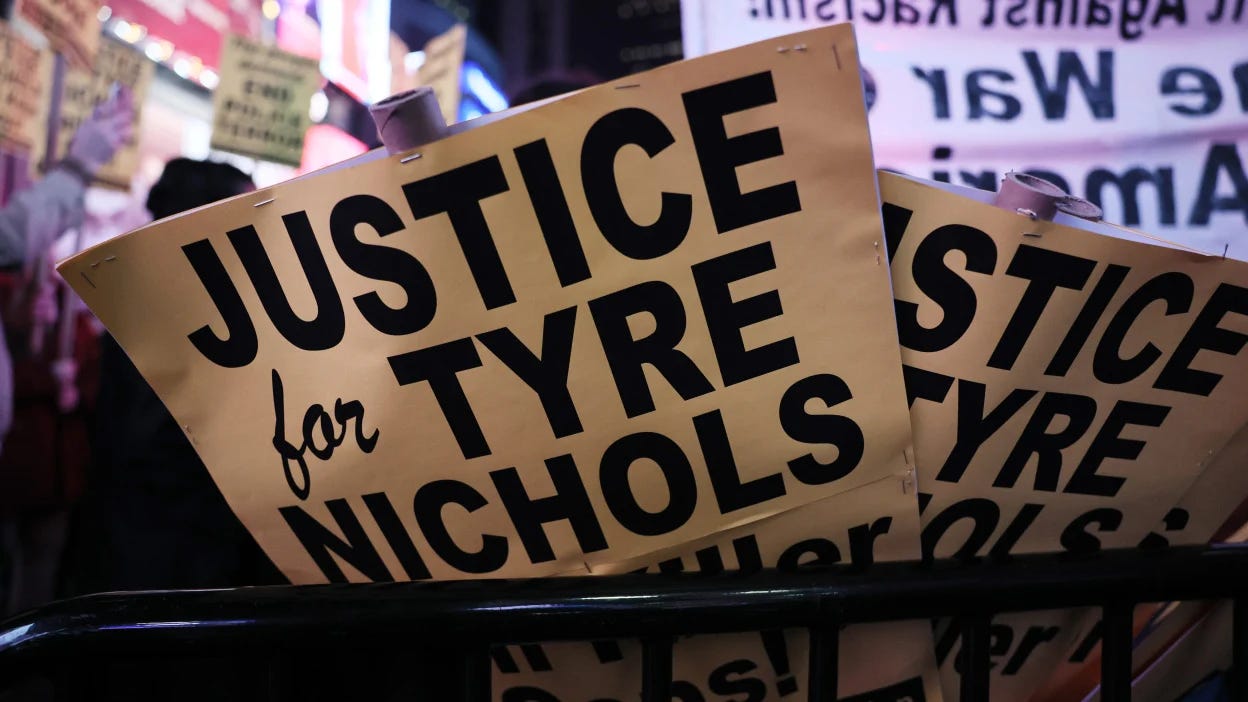Who’s fault is it anyway?
After the killing of Tyre Nichols, both parties can’t even agree on why previous reform efforts failed — let alone reach consensus on a path forward to address an policing in America.
It was supposed to be different after George Floyd. In an institution known in recent years for intense gridlock and deep partisanship, Congress appeared primed to come together and address policing in America — an issue that’s plagued communities of color for generations.
The conditions seemed ripe for transformative action too: There was a video of the officer kneeling on Floyd’s neck and back for over nine minutes, global protests rapidly spread to raise awareness of police brutality against Black people, a president in Joe Biden who rode to the White House in large part due to a diverse coalition already deeply skeptical of the justice system and a vice president in Kamala Harris who had her own set of civil rights bona fides, plus slim Democratic congressional majorities. Despite these variables, lawmakers failed to make it happen. And the issue fell from mainstream consciousness for the better part of two and a half years.
Now, in the wake of the unspeakable killing of Tyre Nichols, the 29-year-old Black man who was severely beaten by Memphis Police Department officers earlier this month, both sides can’t even agree on why previous efforts failed — let alone reach a consensus on a path forward that demonstrates to voters that Congress can rise above politics to address an issue as urgent as policing in America.
House Republican Leader Steve Scalise said that he was disturbed by the video and that the killing should have never happened. He added that a bill introduced by Republican Rep. Pete Stauber of Minnesota last Congress and similar to legislation from Republican Sen. Tim Scott of South Carolina to make modest reforms to policing in America as something House Republicans were interested in moving before it ultimately stalled.
But Scalise stopped short of endorsing policies that most Democrats and justice advocates, including ending the principle that shields most police officers from civil lawsuits.
“I’m strongly against getting rid of qualified immunity or this whole ‘defund the police’ movement where some people tried to take advantage of that to go after cops who are good cops,” he said to reporters on Tuesday after the House Republicans’ weekly press conference. “So root out the bad cops but support our police who are risking their lives to keep our communities safe.”
Pete Aguilar, the number-three House Democrat, on the other hand pointed to Senate Republicans as the reason police reform didn’t pass after Floyd was killed.
“The policies we enacted were about accountability. Unfortunately, Senate Republicans wouldn’t go along with that level of accountability,” he told reporters during the House Democrats’ weekly press conference. “And that’s too bad.”
Meanwhile, Republican Sen. Lindsey Graham of South Carolina told reporters on Monday that it was Democrats who kept moving the goalposts during previous negotiations and that Republican Sen. Tim Scott of South Carolina held talks in good faith.
“He’s been the leader on this issue,” Graham said of Scott. “And I think what he says will matter a lot on our side and I think he and Senator Booker are talking — we’ll see what happens.”
Graham added agreed with Scalise that “defund the police” — a slogan that supports reinvesting funds from police departments into social services, youth services, housing, education, healthcare and other community resources — is part of the problem when it comes to resuming negotiations.
“It backfired for a lot of Democrats who were not part of the ‘defund the police,’” Graham said. “But that kind of hangs over this now.”
Keep reading with a 7-day free trial
Subscribe to Supercreator to keep reading this post and get 7 days of free access to the full post archives.


